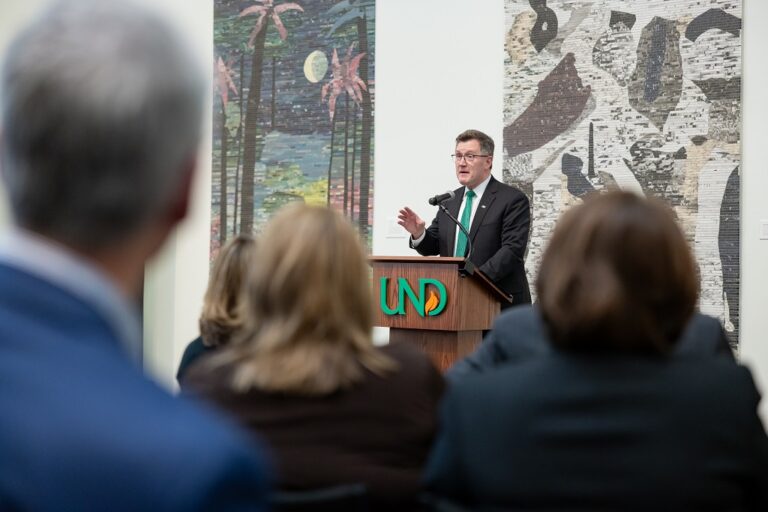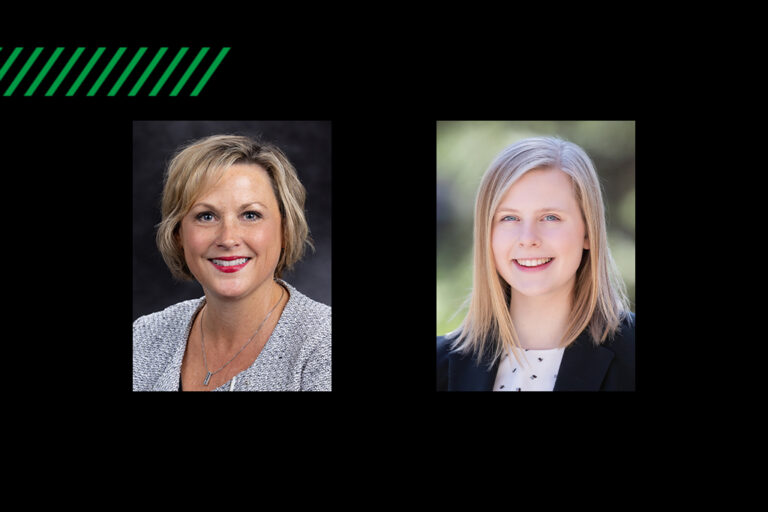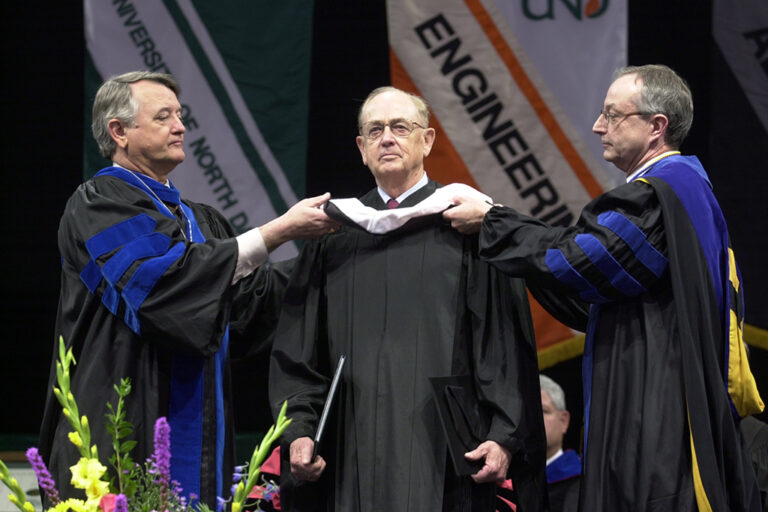Building a flock of healers
New INMED head focuses on health challenges

Don Warne wants to build a flock of healers.
The new director of the Indians into Medicine (INMED) program is focused on offering opportunity and hope to American Indians and other underserved populations.
“I want to grow the INMED program and promote diversity,” said Warne, a physician who earned his M.D. from Stanford and his Master of Public Health degree from Harvard. “I also want to develop research opportunities for students.”
Warne, who also serves as the inaugural associate dean for diversity, equity, and inclusion at the School of Medicine & Health Sciences, will teach American Indian health policy, and plans to develop the first doctoral program in the world in indigenous health, as well as increase the number of American Indians who do clinical research.
“Of the more than 37,000 full professors at medical schools, only 10 are American Indian,” said Warne. “I’m number 11. That’s just astounding.”
Warne assumes the role of INMED Director long held by Eugene Delorme, who retired last year. Joycelyn Dorscher had served as interim INMED director since then.
Established in 1973, INMED is a national program designed to help more American Indian health professionals practice in underserved and rural areas. INMED services include academic and personal counseling for students, assistance with financial aid applications, and summer enrichment sessions at the junior high through professional school levels.
A million days of work

The most challenging part of his new job, said Warne, is that there’s just not enough time to do everything.
“To frame it, there are a million days of work, and I have about 6,000 days if I work until I’m 70,” he said.
During his welcome reception on May 31, Warne said that the average life expectancy for a male living on the Pine Ridge Reservation in South Dakota – where he is from – is just 48 years.
“The truth is, we have so many community members suffering at this moment,” said Warne. “I’m fortunate and blessed to do this work, and see this as a huge responsibility to work as effectively as possible to bring some relief.”
Warne is especially interested in disparities among American Indian populations. He said that tribal communities have a lot of health concerns with alarming statistics, including alcoholism, fetal alcohol syndrome, diabetes, hypertension and coronary artery disease.
He hopes to encourage more American Indians to become academic faculty at medical schools.
Role modeling
Warne said that while growing up in Pine Ridge, he learned traditional medicine from his uncles, who were Lakota medicine men and healers. A faculty member encouraged him to become a physician while he was earning his bachelor’s degree in kinesiology at Arizona State University.
“I had never met an American Indian physician,” he said. “My first question was, are there American Indian physicians? It didn’t seem real. My mom worked at the Indian Health Service and arranged for me to meet an American Indian physician. It was powerful. The idea of role modeling and seeing it can be done is much more impactful.”

Meeting the challenge
Much of Warne’s work will focus on One UND Strategic Plan’s second Grand Challenge, addressing health challenges.
His vision, to help the School of Medicine and Health Sciences do an even better job of addressing health disparities in North Dakota and increase the number of American Indians who earn doctoral degrees, is also part of the Plan’s Goal 4, delivering opportunity, and Goal 5, promoting an inclusive campus.
Warne is adding two new faculty in indigenous health, along with other INMED staff. He’s already submitted grant applications, and also brought grant funding when he left his previous position as professor and chair of public health at North Dakota State University.
“There is great opportunity for growth here,” said Warne. “I’ve always appreciated the work of INMED, and I’m excited to link with medical and other health sciences students.”


